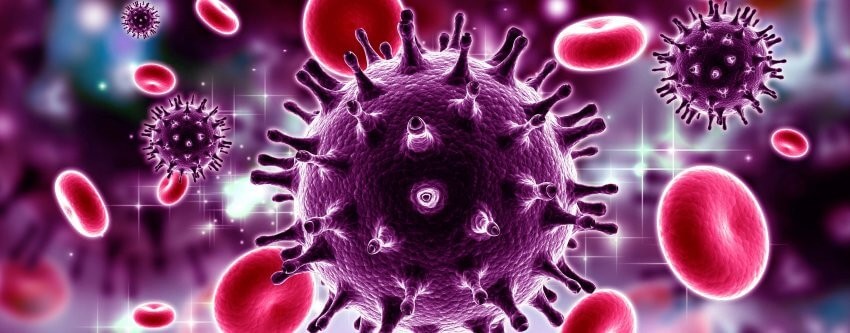
Healthline: New HIV variant discovered: May be more infectious and severe
UC expert says current treatments are still effective
New research from the University of Oxford finds a new variant of HIV, the virus that causes AIDS, that is potentially more infectious and could more seriously affect the immune system. So far, 109 people, most of whom live in the Netherlands, have the variant.
The new strain, called the VB variant, damages the immune system, weakening people’s ability to fight everyday infections and diseases much faster than the previous HIV strains, scientists say. It also means that people who contract the new variant may develop AIDS faster.
In a story published by Healthline, Carl Fichtenbaum, MD, of the Division of Infectious Diseases at the UC College of Medicine was one of the experts cited reacting to this new variant.

Carl Fichtenbaum, MD, of the Division of Infectious Diseases at the UC College of Medicine/Photo/Joe Fuqua II/UC Creative + Brand
Fichtenbaum told Healthline that it has been known for decades that some individuals get sicker quicker than others.
“The amount of virus measured in a drop of blood is a surrogate of disease progression. The higher the amount, the more likely someone will progress and become ill,” Fichtenbaum told Healthline.
“We suspect many times this is because the type of HIV they got was more aggressive or virulent,” he said. “Our practice is the same regardless of variant — get tested right away and start treatment.”
He noted that there is “no evidence” that the current treatments won’t work.
Fichtenbaum explained that reducing the risk of infection begins with sex with a condom or other barrier method.
“Know your status of HIV and those you have sex with by getting tested first; use condoms for sex; don’t share any needles or paraphernalia for injection drug use,” he said. “Those at higher risk can use PrEP or Pre-exposure prophylaxis.”
Fichtenbaum said FDA-approved treatments for people living with HIV include a tenofovir/emtricitabine combination tablet daily and cabotegravir injections every 2 months.
“Those individuals that have HIV can take their medications and be ‘undetectable’ on their viral load, which eliminates the chance of HIV transmission,” he said. “Hence the slogan U=U; undetectable equals untransmittable.”
Lead image of HIV cell/Shutterstock
Next Lives Here
The University of Cincinnati is classified as a Research 1 institution by the Carnegie Commission and is ranked in the National Science Foundation's Top-35 public research universities. UC's medical, graduate and undergraduate students and faculty investigate problems and innovate solutions with real-world impact. Next Lives Here.
Related Stories
UC study: Brain organ plays key role in adult neurogenesis
July 2, 2024
The University of Cincinnati has published research in the Proceedings of the National Academy of Sciences that found the choroid plexus and cerebrospinal fluid play a key role in maintaining a pool of newly born neurons to repair the adult brain after injury.
WalletHub: 5 best chip and pin credit cards
July 1, 2024
University of Cincinnati director discusses 5 best chip and pin credit cards with WalletHub
WVXU: Supreme Court temporarily blocks key air pollution...
July 1, 2024
University of Cincinnati law professor spoke with WVXU about recent Supreme Court decision to temporarily block key air pollution regulations.
